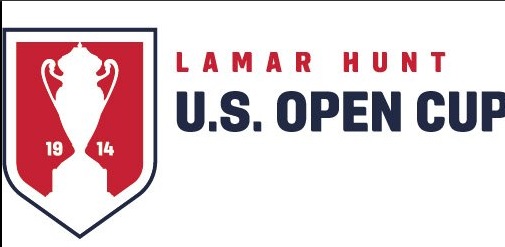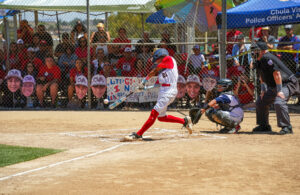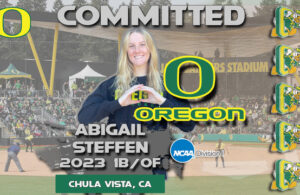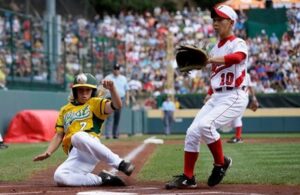Issues in the Lamar Hunt US Open Cup – Part 1
- Updated: April 15, 2016

With the first round of the 2016 US Open Cup starting in a month, I thought I would write a three-part series about the tournament. I will discuss three different issues in each article. This one responds to a new rule introduced after last year’s competition. Let’s keep the conversation going with the hash tag already in use—#USOC2016—and add more to it.
During the 2015 US Open Cup, many MLS-affiliated United Soccer League (USL) teams and the sole National Premier Soccer League (NPSL) team owned by the North American Soccer League (NASL) team competed in the tournament. They are listed below with their MLS and NASL counterparts in parentheses.
Bethlehem Steel FC (Philadelphia Union, MLS)
LA Galaxy II (LA Galaxy, MLS)
New York Red Bulls II (New York Red Bulls, MLS)
Orlando City B (Orlando City SC, MLS)
Portland Timbers 2 (Portland Timbers, MLS)
Real Monarchs (Real Salt Lake, MLS)
Seattle Sounders FC 2 (Seattle Sounders, MLS)
Swope Park Rangers (Sporting KC, MLS)
New York Cosmos B of NPSL (New York Cosmos, NASL)
Rio Grande Valley FC (Houston Dynamo, MLS)
The rosters of these affiliated teams contain players who normally play for the first team. The MLS team prevented these players from playing for the USL team to keep them fit, healthy, and eligible for the first team’s match. If a player participated with a different club, then they would no longer be eligible for another team’s roster.
The lower division team then called up academy players to fill in the positions. Unsurprisingly, these youth failed to meet the necessary skill and fitness levels to successfully compete against the higher division players. The games then typically resulted in the USL teams not moving on to the next round. Josh Hakala, in his article for TheCup.US “MLS-Owned USL teams not allowed in 2016 US Open Cup, per USSF policy change,” used the New York Red Bulls II match against the Jersey Express as an example when he first reported about the policy change starting in 2016.[i]
US Soccer wrote a new amendment to its bylaws that affected many USL teams (and later NASL) likely because of the occurrence described above.[ii]
The organization stated, “Any Outdoor Professional League Team that is majority owned by a higher-level Outdoor Professional League Team or any team that is (1) majority owned by an Outdoor Professional League Team, (2) registered with any Open Division League, and (3) registered as a professional team, will not be able to take part in the Open Cup. The Open Cup Committee shall review and determine team eligibility annually pursuant to this provision and report its decisions to the National Board of Directors.”[iii]
US Soccer later added another provision. It “forbid any Outdoor Professional League Team whose player roster is managed by a higher-level Outdoor Professional League Team from participating in the tournament.”[iv] This addition disqualified Rio Grande Valley FC because the Houston Dynamo owners manage it as well. The Dynamo actually requested this change.[v]
Neither situation is fair to these USL teams, nor the New York Cosmos B after the Cosmos CEO Erik Stover said the lower-division team would adhere to the rules as well even though the Cosmos B are reserves. Yet, as an NBC Sports Soccer article stated, this problem is not new.[vi] The New England Revolution and the Rochester Rhinos had this issue it back in 2013.[vii] It simply became more of an issue with the growing number of MLS-affiliated teams.
@GothamistDan @kkfla737 Technically the rule doesn't apply to us, but we have decided not to include #CosmosB in the #USOpenCup. (1/2)
— Erik Stover (@ErikStoverNYC) November 5, 2015
@GothamistDan @kkfla737 Thanks. We do wish our young guys would have the experience but the integrity of the tournament is more important
— Erik Stover (@ErikStoverNYC) November 5, 2015
His second tweet explains my opinion about this rule change. Stover is following the rules because he understands the history of the US Open Cup and its importance to American soccer.
Now, the players who solely play for the MLS-affiliated USL teams and NASL-affiliated New York Cosmos B cannot take part in the most important American soccer tournament. This decision only benefits MLS teams. They no longer have to worry about the logistics of their first team players being eligible for the Open Cup. Yet, in the long run, allowing these teams to compete also would benefit the MLS teams because they might then notice the USL players and either call up or sign them to the first team.
Nonetheless, in the short-term, none of these players gain experience from playing in the US Open Cup. They also do not receive the opportunity to show off their skills. This tournament shines a national spotlight on players. The players on affiliated teams deserve the chance to be—I’m going to use a metaphor my professor used regarding the history of popular amusement—in the “big tent at the circus” rather than always being delegated to “the side show.” Part II will discuss a related issue—putting the US Open Cup in “the big tent” aka on television.
US Soccer seemed more concerned with helping MLS than the lower-divisions since it ruled in favor of MLS. I think a different policy should have been written—forbid MLS teams from telling USL teams to bench a loaned player during US Open Cup competition.
I think these USL players would benefit more from playing in the US Open Cup—even if they lose—than not participating at all. Some experience is better than none at all. The more they receive, the better they become. Who knows, (highly unlikely) they might piqué the interest of national team coaches.
What do you think?
I would like to hear your thoughts—whether you agree or disagree—so you may contact me at patsalkeld92@gmail.com or tweet me @patsalkeld. Also, feel free to check out my personal website at www.patricksalkeldhistorian.wordpress.com (still a work in progress).
[i] Josh Hakala, “MLS-Owned USL teams not allowed in 2016 US Open Cup, per USSF policy change,” TheCup.US, November 4, 2015, http://thecup.us/2015/11/04/mls-owned-usl-teams-not-allowed-in-2016-us-open-cup-per-ussf-policy-change/.
[ii] “U.S. Soccer Issues Changes to Team Eligibility Policy for Lamar Hunt U.S. Open Cup,” US Soccer, January 7, 2016, http://www.ussoccer.com/stories/2016/01/07/20/29/160107-usoc-us-soccer-issues-changes-to-team-eligibility-policy-for-lamar-hunt-us-open-cup.
[iii] “U.S. Soccer Issues Changes to Team Eligibility Policy for Lamar Hunt U.S. Open Cup,” US Soccer, January 7, 2016, http://www.ussoccer.com/stories/2016/01/07/20/29/160107-usoc-us-soccer-issues-changes-to-team-eligibility-policy-for-lamar-hunt-us-open-cup; “Josh Hakala, “MLS-Owned USL teams not allowed in 2016 US Open Cup, per USSF policy change,” TheCup.US, November 4, 2015, http://thecup.us/2015/11/04/mls-owned-usl-teams-not-allowed-in-2016-us-open-cup-per-ussf-policy-change/.
[iv] “U.S. Open Cup Committee Adds New Adjustment to Policy Regarding Team Eligibility,” US Soccer, March 28, 2016, http://www.ussoccer.com/stories/2016/03/28/22/09/160328-usoc-open-cup-committee-adds-new-adjustment-to-policy-regarding-team-eligibility.
[v] “U.S. Open Cup Committee Adds New Adjustment to Policy Regarding Team Eligibility,” US Soccer, March 28, 2016, http://www.ussoccer.com/stories/2016/03/28/22/09/160328-usoc-open-cup-committee-adds-new-adjustment-to-policy-regarding-team-eligibility.
[vi] Nicholas Mendola, “U.S. Open Cup Dismisses MLS-Owned USL Clubs from 2016 Tournament,” NBC Sports Soccer, November 5, 2015, http://soccer.nbcsports.com/2015/11/05/u-s-open-cup-dismisses-mls-owned-usl-clubs-for-2016-tournament/.
[vii] Nicholas Mendola, “U.S. Open Cup Dismisses MLS-Owned USL Clubs from 2016 Tournament,” NBC Sports Soccer, November 5, 2015, http://soccer.nbcsports.com/2015/11/05/u-s-open-cup-dismisses-mls-owned-usl-clubs-for-2016-tournament/.



